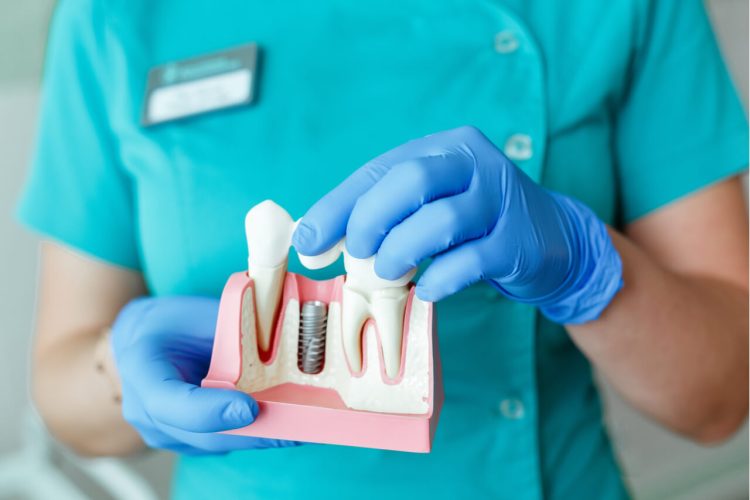Introduction to Dental Implants
In the modern world, dental implants have emerged as a preferred solution for tooth loss. However, improper care after implantation can lead to complications that may escalate more swiftly than those associated with natural teeth. According to research from the European Association for Osseointegration (EAO), one in five implant recipients may experience peri-implantitis within a decade. Thus, establishing good oral hygiene habits is essential for preventing this condition.
Understanding Peri-Implantitis
Peri-implantitis is a condition characterized by inflammation of the gums surrounding an implant, usually caused by the accumulation of dental plaque. If not properly managed, this can result in symptoms such as swelling, bleeding, and, in severe cases, pus formation and bone loss around the implant. Early detection is crucial; if caught in time, the treatment can be very effective. Therefore, regular follow-up appointments after implantation are vital.
Practicing Proper Oral Hygiene Post-Implant
The post-surgical period can be sensitive, yet maintaining oral cleanliness is paramount. During the first week or two following surgery, it is advisable to use a toothbrush with soft bristles. After assessing the healing progress, you may transition to a regular toothbrush.
Position the toothbrush at a 45-degree angle towards the gum line, applying gentle pressure. Use short, back-and-forth movements to assist in plaque removal, making sure to keep away from the wound area to prevent irritation.
For the First Two Weeks
Patients experiencing pain or sensitivity should utilize softer brushes designed for post-operative care. For example, the TePe Special Care™ toothbrush features 12,000 ultra-soft bristles that minimize irritation.
After Two Weeks
Once the healing progresses, using a toothbrush with even softer and denser bristles can be beneficial. Options like the TePe Gentle Care™ toothbrush provide an excellent choice for sensitive gums. Alternatively, the TePe Supreme™ toothbrush, with its dual-layer bristle design, allows for deeper cleaning along the gum line while being gentle on the teeth.
Cleaning the Implant Area Effectively
The primary cause of peri-implantitis is the inflammation due to plaque accumulation around the implant. Ordinary toothbrushes may not adequately reach these areas, so it is crucial to utilize specialized tools for effective cleaning.
Selecting the Right Toothbrush
A toothbrush like the TePe Implant/Orthodontic toothbrush, with its elongated head and fine bristles, facilitates effective cleaning of the implant region from the buccal side.
Innovative Design for Comprehensive Cleaning
The angled neck of the TePe Universal Care™ implant toothbrush allows access from both the tongue side and palate, ensuring thorough cleaning of the implant site.

Specialized Cleaning Tools for Implants
For targeted cleaning around single implants or various types of implants, a compact tufted toothbrush such as the TePe Compact Tuft™ is ideal. This design features a small, angled head with round bristles, making it perfect for reaching intricate areas.
Specialized angle brushes, like the TePe Interspace™ interdental brush, can easily clean hard-to-reach areas due to their fine-tip bristles. Their detachable head design adds versatility, accommodating different types of implants.
Additionally, a specially designed dental floss for implants, such as TePe implant floss, can effectively clean around the implant and bridge. With a plastic-coated end making it easy to maneuver, this tool is essential for thorough care.
Interdental Brushes for Diverse Implant Types
Interdental brushes are a practical choice for cleaning around various implant shapes and sizes. The TePe interdental brush comes in nine different sizes, featuring both soft and regular bristles, and is designed for safety with a plastic-coated wire.
Conclusion
Dental implants offer a transformative solution for those facing tooth loss, but they come with their own set of responsibilities. Adopting a rigorous oral hygiene regime post-implantation is crucial to preventing conditions such as peri-implantitis. By utilizing the right tools and methods for cleaning, patients can ensure the longevity and success of their dental implants.













































Discussion about this post